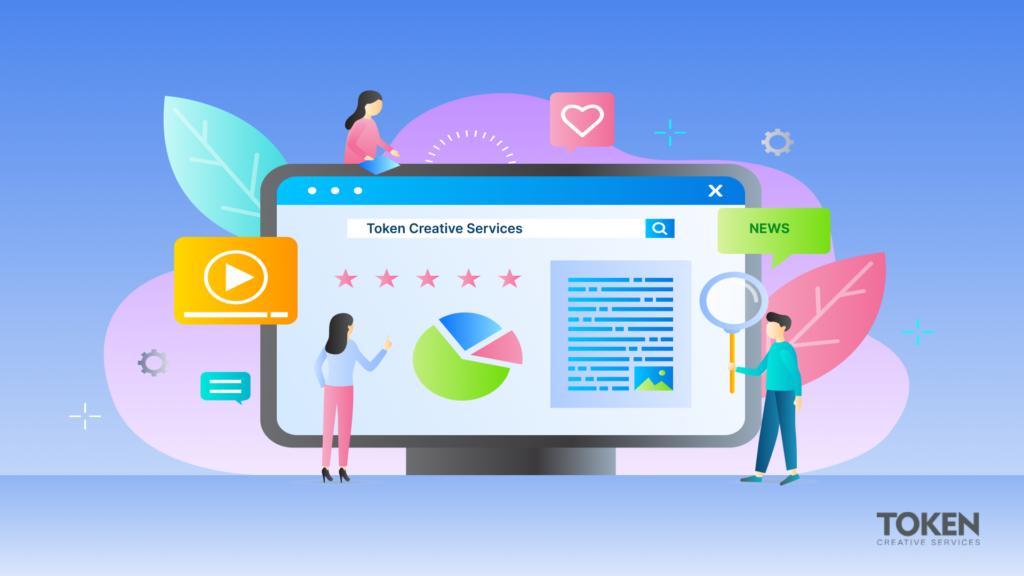Advertising Tips for Small Businesses
If you own a small business and aren't tapping into the world of PPC advertising then you're missing out on one of the easiest ways to increase leads and sales. Over 90% of customers begin their buying process with an online search, which means that it's vital you have paid ads running so that your business can be seen by people searching for products or services that you provide. This article will show you how to use PPC to tap into that massive opportunity.
Advantages and Disadvantages of PPC Advertising
Advantages: With PPC, you only pay when someone clicks on your ad, so if you don’t get any clicks, you don’t pay anything. It’s very action-oriented and encourages people to take immediate action, which is useful for impulse purchases. Ranking system helps you weed out duplicate clicks. Decent returns per click: Part of the reason PPC stops working once people have bought your product is because they end up clicking lots of ads before they finally buy. With Promoted PPC, you get certain dimensions of return for each click; e.g. clickthrough rate, conversion rate, and average cost per action (average CPC). An advantage over paid ads: Because you pay when someone clicks on your ad, you get more control over the message you want to promote. Theoretically, you can tell people what they should do next to solve their problem, with a PPC ad.
Related read: Token Creative Services – Among Canada’s Top Creative Agencies
Disadvantages: It suffers from the same problems as paid marketing. It’s not rare for a bad ad campaign to be created, and people will gladly click on many times for low prices. PPC is prone to mistakes and bad execution by the advertiser. Leroy Brown of SEOmoz points out that the results of two separate campaigns of PPC ads on baseball-cards linked on Twitter showed a similar relationship of each campaign collectively having a negative average CPC after multiple auctions. With paid marketing, if one ad gets low scores from multiple sources, it doesn’t affect the overall result. With promoted PPC, however, advertising agencies will only create one campaign. There’s also the question of price transparency. When you advertise with PPC, you only see the price that your advertisers pay per click, not the price your customer paid for your product. Critics say that this means that marketers set the price artificially high, and rarely take into account the cost of their actual costs. With promotions, your customer pays higher for you to advertise their product, so that they can benefit from your marketing efforts.
Advantages: Best for long-term marketing strategies, and higher profits per click.
What is PPC?
PPC, or Pay-Per-Click, is an advertising model that rewards publishers for their quality content.
The advertisements shown on the right are from a PPC campaign targeting "Top 10 Cities for Bougrah & Cocina Restaurants." Google AdSense advertising is an advertising model that rewards publishers for producing valuable content. Industry participants often use Google AdSense as their advertising product for websites, as they offer advertisers considerable control over the display of their advertisements. Most of the time, when people see ads for paid Google products, they are aware that the advertiser is paying to have the product placed on the publisher's website. Publishers can choose to buy display ads on the same page as the publisher's paid content or anywhere along the page near the content being promoted by the advertiser. Adsense advertisements are placed above the fold on the page, from near the top to the bottom. Publishers generally want to rank very high for search terms that generate traffic to their sites, so advertisements like this can rank very well.
In this particular case, "Top 10 Cities for Bougrah & Cocina Restaurants" could represent on the site some additional restaurant information, such as the ranking category, access information (such as driving directions), images from the Jacques Saint-Emard site, and a menu. The additional text in the ad is also a way for Google to tailor the ad so that the reader gets a better experience based on a keyword search term.
Do Check Out: Pay-Per-Click marketing agency in Toronto
Strategies for Successfully Running a PPC Campaign
There are a few key strategies to running a successful PPC campaign. The first is that you have to be strategic in how you write your ads. You can’t just write a bunch of ads and throw money at them. You have to know what you want to say and really think about how you’re going to say it. After you are done with writing your ad, make sure you have a solid strategy behind it. A lot of people get overly hung up on “the word control” in their ads. If you have used hashtags like #tech and #innovation, then you know what I’m talking about. Your ads should support and resemble what your blog is about. If you are running your PPC ads on Facebook, you probably know what most of the ads on your page look like. They’re mostly images, a short paragraph, and a call to action. Of course, you want to optimize these ads for higher clicks. If you are running ads elsewhere, then realize that you won’t get the best clicks using these standards. There have been services that automatically optimize up to 3–5% of your ads for the best possible click-through rates. If you really want to reach your targeted audience, you need to think about custom optimizations.
One of the biggest mistakes I see businesses make is running an ad that has a terrible headline. I’m sure your Facebook adwriter could come up with a few examples, but when in doubt, write a headline that describes what your ad involves. A headline like “10 things greater than a typewriter” is much, much less likely to convert than a headline like “How to build a loyal following on Instagram”.
The most common PPC mistakes are:
Use keywords sparingly. Use your best judgment when deciding what words to include in your ads. Keep your ads topical. If you want to advertise weekly concert tickets, don’t say it in your ads like “buy tickets here.” Just say “buy concert tickets,” and don’t worry about including the word “here.
5 Most Common Mistakes Made When Starting a New PPC Campaign
- Not setting a daily budget
- Setting the wrong budget
- Not using negative keywords
- Not segmenting your data
- Not tracking conversions
The biggest cost in search is users’ experience. Marketers and entrepreneurs, when setting up their systems, pay less attention to the user experience then the cost efficiency of their campaigns. Since Google is increasing the skills of its machines over time, these issues will get less and less noticeable. But of course the cost could still mount. In the long term, every user downloaded from search is a revenue for Google.
Herein lies the danger of doing search poorly, oftentimes all without a plan. With the coronavirus, users and businesses are fearful. They are now unable to go about their daily lives and conduct their daily financial calculations. A lot of people are afraid to venture out, since they don’t know if they will come to harm in the stranger land when things return to normal. Poorly running search can make these fears come true. A lot of times, on social media or mention pages, users are using the wrong words. When this happens, search engines do not show up right. But this is not the end of it. Google doesn’t care about you or your startup with the appointment book. Search is now so sophisticated and has such organic reach that no matter what you do, it will not change that. When you do nothing at all, optimization's, while running your business can still become far less efficient. This is where a lot of people fail.
If you are already running advertisements for your business, consider checking out our other post on How To Increase Lead Volume With PPC Advertising.
Related Articles
Hyper-Local PPC: Targeting Audiences on a Street-Level
PPC for Franchise Businesses: Tailoring Campaigns for Multiple Locations
Let Us help you!
Have a question for our team? Want to learn more about what we offer? Already know what your company needs and just want to have a conversation with us?
Follow us for more helpful content.
Let Us help you!
Have a question for our team? Want to learn more about what we offer? Already know what your company needs and just want to have a conversation with us?

